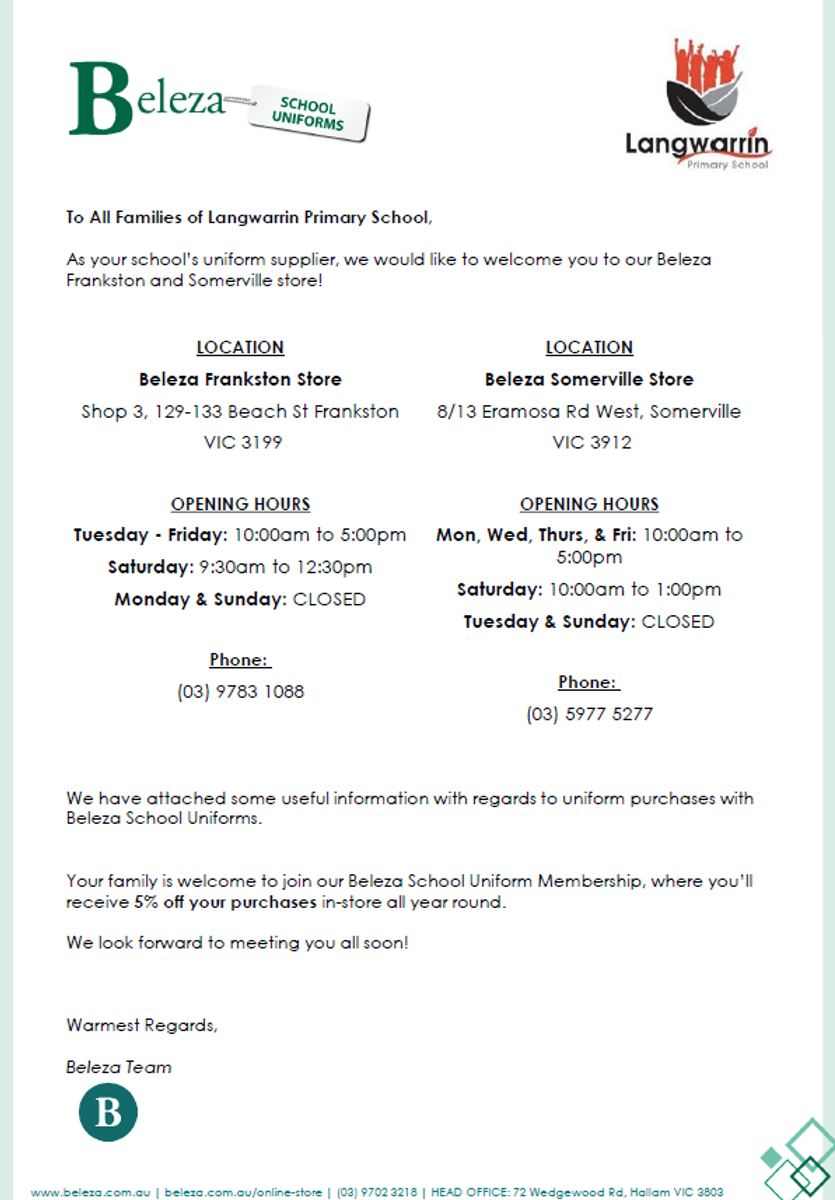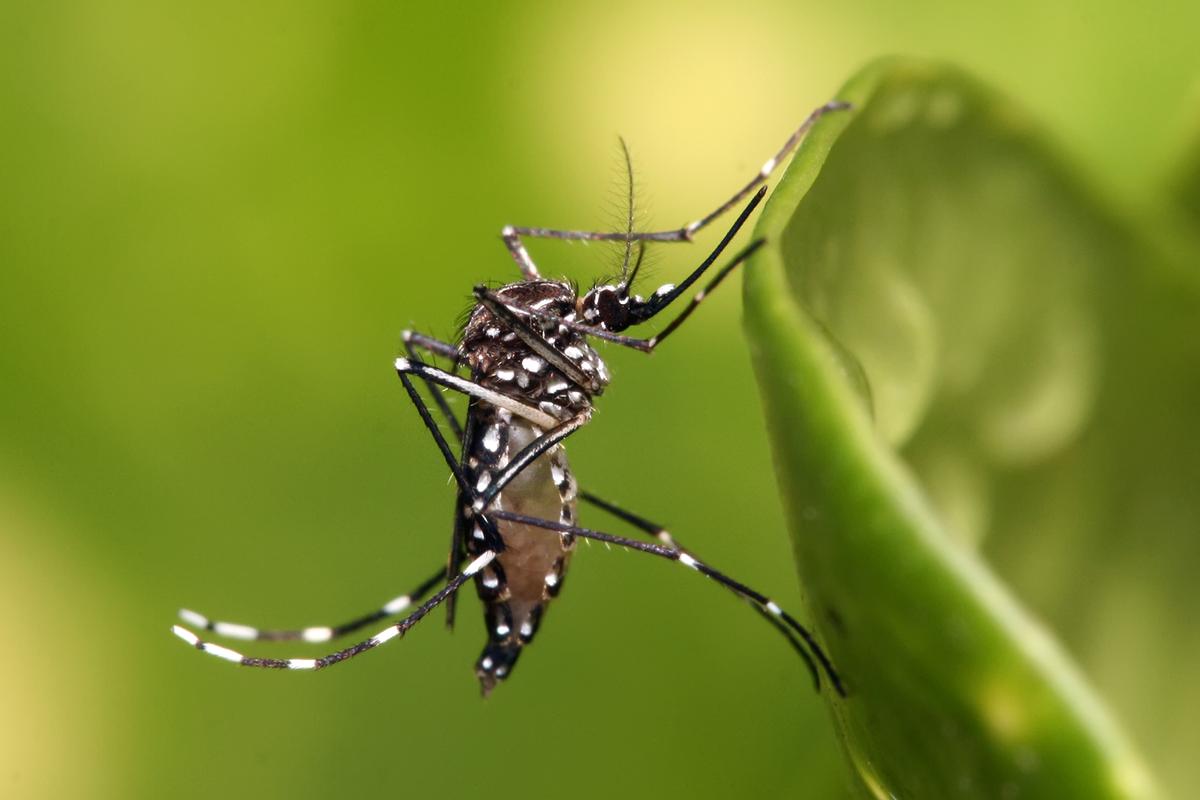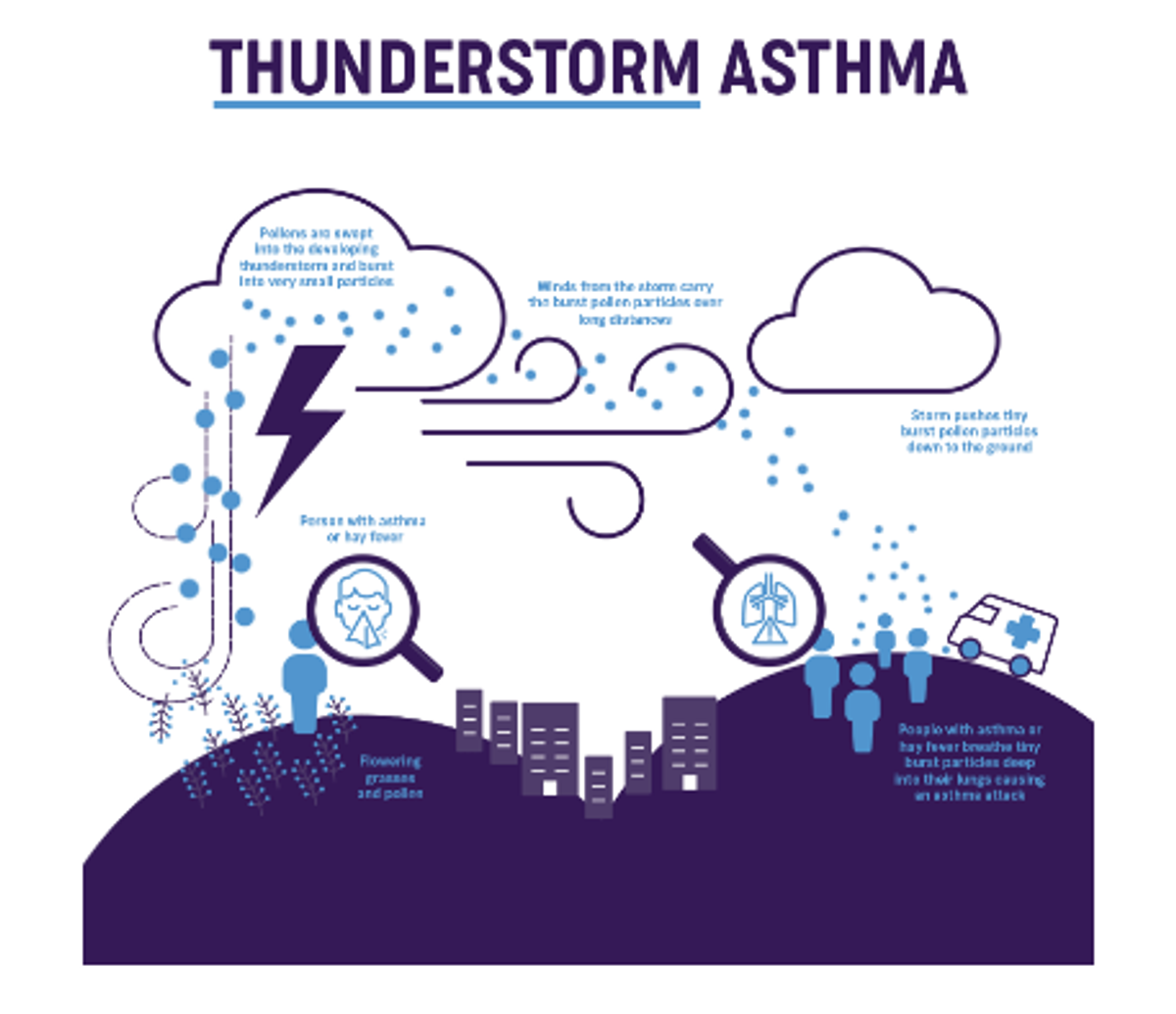Parent Information
Term 4

Parent Information
Term 4






Warm and wet weather can result in greater numbers of mosquitoes and increased risk of illnesses from mosquito bites. While the overall risk is low, some mosquitoes carry diseases that make people sick.
The best protection against mosquito-borne illness is to avoid mosquito bites.
Families can protect against mosquito bites by:
Japanese encephalitis virus is spread to humans through bites from infected mosquitoes and can cause a rare but potentially serious infection of the brain.
Free Japanese encephalitis vaccines are available to protect Victorians at higher risk of the virus.
The Victorian Department of Health encourages eligible people who live or work in high-risk local government areas to get vaccinated.
For more information, including what is considered a high-risk area and eligibility for a free vaccine, refer to the Department of Health’s Japanese encephalitis webpage.
Find out more
For more information on protecting against mosquito-borne diseases, families can refer to the following Better Health Channel pages: · Mosquitoes can carry diseases · Protect yourself from mosquito-borne disease, including a handy checklist to help reduce mosquito breeding sites at home and resources translated into other languages.


Thunderstorm asthma – be prepared this pollen season
Grass pollen season, which typically runs from October to December each year in Victoria, brings an increase in asthma and hay fever symptoms. It also increases the risk of thunderstorm asthma. For people with asthma or hay fever, especially those who experience wheezing or coughing with their hay fever, thunderstorm asthma can be sudden, serious and even life threatening.
Langwarrin Primary School will implement a range of measures to keep our school community safe as the risk of thunderstorm asthma increases.
Many of our staff are trained in asthma first aid, and we will monitor the VicEmergency app to receive thunderstorm warnings, and, where appropriate, keep students indoors when weather forecasts identify greater risk.
During the season, there are some things you can do to prepare and protect yourself and your family:
Protect yourself this pollen season – managing asthma and allergies matters.
Find out more
For more information, speak to your doctor. You can also visit the Better Health Channel website.